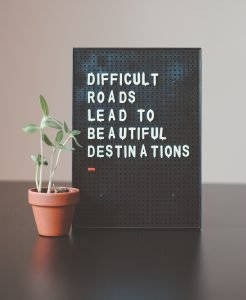
5 Tips for a Great Presentation
Tony Robins shares that we as humans have human needs and they are, certainty, variety, connection, contribution, growth, and significance. In daily life, you can

Boundaries are important for us to have and understand. We don’t necessarily need a lot of rules in our lives. If we build up too many walls, we run the risk of isolating ourselves from people and opportunities. Keeping in mind that what you value is important to you and that is the reason you create boundaries. A friend that is always late when you value time, having a mother show up unannounced when a priority of yours is keeping a schedule, these are a few examples of boundary issues.
Clearly expressing boundaries needs to happen when a boundary that you hold has been crossed. When someone does something that infringes on you, emotionally or physically, it is not automatic that they know they had crossed a boundary. Most of us don’t know what other people’s boundaries are. Take a look at my blog last week as it explored the topic on creating principles and priorities. Knowing what you value in life will help you set healthier boundaries.

Here are a few tips to remember when you feel it is time to set a boundary due to events that are interfering with your principles:
Here are a couple examples of things you could say once you’ve decided on a boundary:

Lastly, I want to talk on the topic of eliminating people from our lives, as this is not a way of creating boundaries. There are occasions when people are physically and mental harmful to you and in those cases removing yourself might be best. However, I do want to offer you a thought; what if those who cause the most frustration in you are really here to help you grow? Instead, try to ask yourself, “what can I learn from this relationship, how will listening to this person allow me to grow?”
The key to healthy boundaries is in the request and in the follow through. When you follow through with what you find to be important you are showing respect to yourself and respect to others through your communications. If creating boundaries is new to you, realize that creating boundaries now could be challenging or they could be liberating…the choice is yours.
Get the Zoom link sent to your inbox and join the live call of the week.

Tony Robins shares that we as humans have human needs and they are, certainty, variety, connection, contribution, growth, and significance. In daily life, you can

Positive Thinking I love a great positive thought as much as the next person, daily affirmations, and aspiring quotes used to be a part of

I was at the store and saw many men buying chocolates, flowers, and stuffed animals. As a lady that will be married 24 years on

As a culture, we have gotten a little confused about the difference between worth and value in my opinion. A few things have helped me